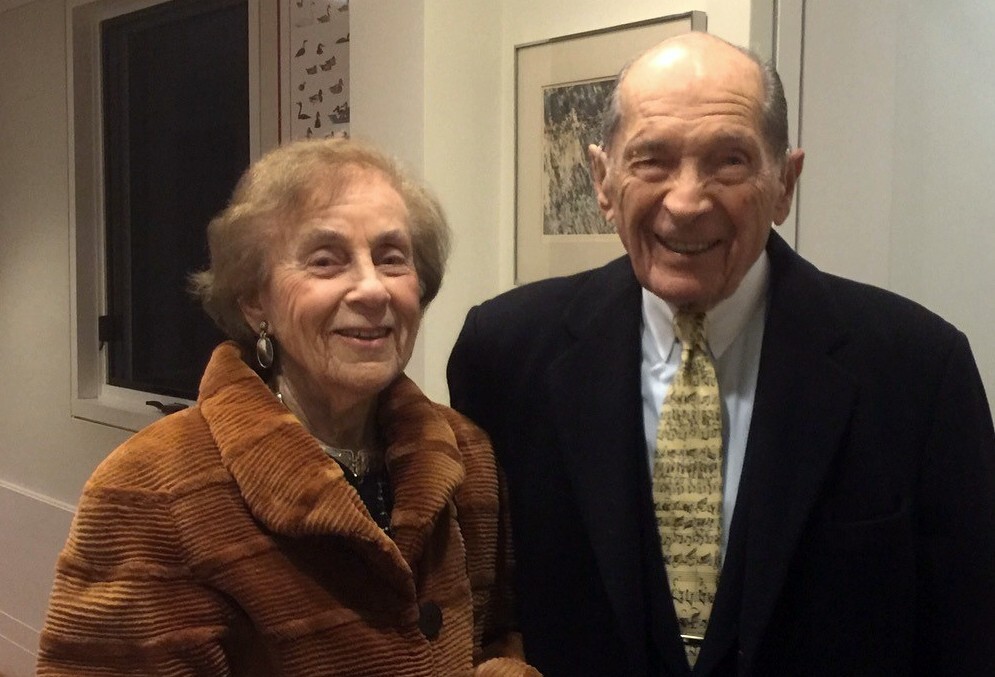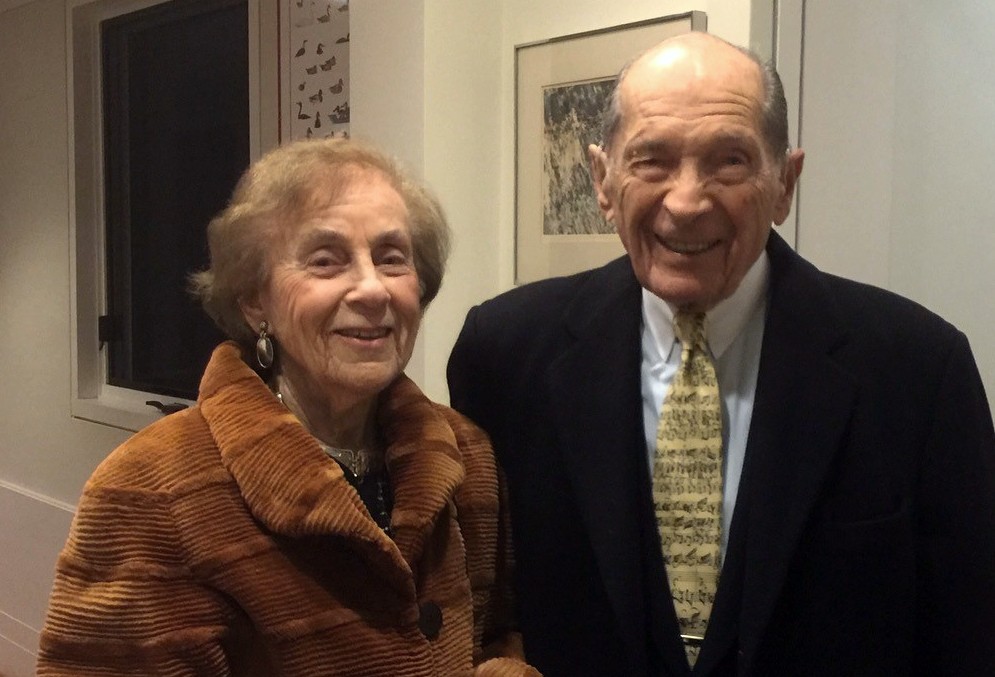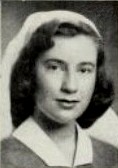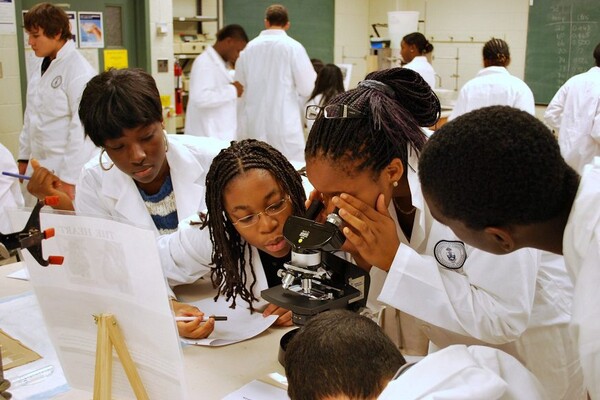
Suzanne Bowness
 For Emily Geldsaler Grant (Dip OT ’47), using her occupational therapy training from the University of Toronto to help soldiers returning from World War II to adjust to life was a privilege she recalls to this day.
For Emily Geldsaler Grant (Dip OT ’47), using her occupational therapy training from the University of Toronto to help soldiers returning from World War II to adjust to life was a privilege she recalls to this day.
“I met people who could no longer be in the army, active and doing their job. But as an occupational therapist, I was able to make them feel that they could still do their part for their country, for themselves and their families, to be ready to face their future,” says Grant.
Since her days as a student, she has continued to give back to the place where her own helping journey started. Her most recent gift provides $1.5 million for the Emily Geldsaler Grant Early Career Professorship, an endowed professorship in workplace mental health in the Department of Occupational Science and Occupational Therapy.
 At the time when Grant pursued her studies, the occupational therapy program was accelerated to meet the needs of wounded soldiers returning from the war. Today, her gift will support occupational therapy research and practice to respond to another crisis: the increasing need for research and solutions around mental health issues in the workplace.
At the time when Grant pursued her studies, the occupational therapy program was accelerated to meet the needs of wounded soldiers returning from the war. Today, her gift will support occupational therapy research and practice to respond to another crisis: the increasing need for research and solutions around mental health issues in the workplace.
“This gift addresses a pressing need in society, at a time when we have the expertise to make a significant impact, says Susan Rappolt, Chair of the University of Toronto’s Department of Occupational Science and Occupational Therapy, noting that the link between mental health and occupation —including paid employment — has always been foundational to the profession. “By increasing research and translating findings into evidence-based employment practices, we can help support people with mental health challenges to enter and stay in the workforce.”
Grant’s recounting of her own post-war work confirms this notion. “Occupational therapy cures what's missing in your life, to get back to a life of feeling meaningful. That's what we were accomplishing, bringing back these young people who still had a life ahead. Our purpose was to teach them how to use what they had to live a fruitful life,” she says.
Bonnie Kirsh, an Occupational Therapy professor cross-appointed to the Department of Psychiatry whose research focuses on community and work integration for people with mental illnesses, says the timing is crucial for expanded research in workplace mental health. “The field is rapidly developing. We are witnessing unprecedented numbers of people in the workplace — or needing to leave the workplace — who are dealing with mental health challenges. Workers and employers alike are facing huge issues around how to manage workplaces so that mental health problems can be prevented and also effectively dealt with when they arise.”
“This is an inspired and meaningful investment in workplace mental health,” says Faculty of Medicine Dean Trevor Young. “The Department of Occupational Science and Occupational Therapy is recognized for its leadership in this crucial area, and this gift will enhance its impact.”
While Grant moved to the United States after her degree and has spent much of her life in that country, U of T was always a special place to her, not only because of her own memories as a student but also because she followed in her father’s footsteps. Bernard Geldzahler graduated from the faculty of Engineering in 1911 and completed military training on the grounds of U of T to prepare for World War I, where he served as a Lieutenant with the Canadian Engineers.
The fact that Grant still remembers U of T fondly is not lost on her daughters, Andrea, Terry and Carolyn. “To this day, she loves driving through campus and pointing out key buildings,” says Andrea, adding that her mother’s donation is really reflective of her as a person. “My mother was always the steadfast one you could count on. Her gift to U of T is a demonstration of that constancy, reliability and commitment to supporting programs, people and ideals long into the future.”

